- Home
- Jack Higgins
Eagle Has Landed Page 24
Eagle Has Landed Read online
Page 24
The five acres of garden at Meltham House were surrounded by a typical Norfolk flint wall, some eight feet in height. It had been spiked with barbed wire at the top for extra security. Meltham itself was of modest size, a small manor house dating from the early part of the seventeenth century. Like the wall, a great deal of split flint had been used, the construction of the building, particularly the design of the gable ends, showed the Dutch influence typical of the period.
Harry Kane and Pamela strolled through the shrubbery towards the house. He had spent a good hour showing her over the estate and she had enjoyed every minute of it. ‘How many of you are there?’
‘At the present time, about ninety. Most of the men are under canvas, of course, in the camp area I pointed out on the other side of the spinney.’
‘Why wouldn’t you take me down there. Secret training or something?’
‘Good God, no.’ He chuckled. ‘You’re entirely too good-looking, it’s as simple as that.’
A young soldier hurried down the steps of the terrace and came towards them. He saluted smartly. ‘Colonel’s back, sir. Master Sergeant Garvey is with him now.’
‘Very well, Appleby.’
The boy returned Kane’s salute, turned and doubled away.
‘I thought Americans were supposed to take things terribly easy,’ Pamela said.
Kane grinned. ‘You don’t know Shafto. I think they must have coined the term martinet especially for him.’
As they went up the steps to the terrace, an officer came out through the French windows. He stood facing them, slapping a riding crop against his knee, full of a restless animal vitality. Pamela did not need to be told who he was. Kane saluted. ‘Colonel Shafto, allow me to present Miss Vereker.’
Robert Shafto was at that time forty-four years of age, a handsome, arrogant-looking man; a flamboyant figure in polished top boots and riding breeches. He wore a forage cap slanted to his left eye and the two rows of medal ribbons above his left pocket made a bright splash of colour. Perhaps the most extraordinary thing about him was the pearl handled Colt .45 he carried in an open holster on his left hip.
He touched his riding crop to his brow and said gravely, ‘I was distressed to hear of your accident, Miss Vereker. If there is anything I can do to make up for the clumsiness of my men …’
‘That’s most kind of you,’ she said. ‘However, Major Kane here has very kindly offered to run me back to Studley Constable, if you can spare him, that is. My brother is priest there.’
‘The least we can do.’
She wanted to see Kane again and there seemed to be only one sure way she could accomplish that. She said, ‘We’re having a little party at the presbytery tomorrow night. Nothing very special. Just a few friends for drinks and sandwiches. I was wondering whether you and Major Kane would care to join us.’ Shafto hesitated. It seemed obvious that he was going to make some excuse and she carried on hurriedly, ‘Sir Henry Willoughby will be there, the local squire. Have you met yet?’
Shafto’s eyes lit up. ‘No, I haven’t had that pleasure.’
‘Miss Vereker’s brother was a padre with the First Parachute Brigade,’ Kane said. ‘Dropped with them at Oudna in Tunisia last year. You remember that one, Colonel?’
‘I certainly do,’ Shafto said. ‘That was one hell of an affair. Your brother must be quite a man to have survived that, young lady.’
‘He was awarded the Military Cross,’ she said. ‘I’m very proud of him.’
‘And so you should be. I’ll be happy to attend your little soirée tomorrow night and have the pleasure of meeting him. You make the necessary arrangements, Harry.’ He saluted again with the riding crop. ‘And now you must excuse me. I have work to do.’
‘Were you impressed?’ Kane asked her as they drove back along the coast road in his jeep.
‘I’m not sure,’ she said. ‘He’s rather a flamboyant figure, you must admit.’
‘The understatement of this or any other year,’ he said. ‘Shafto is what is known in the trade as a fighting soldier. The kind of guy who used to lead his men over the top of some trench in Flanders in the old days armed with a swagger stick. Like that French general said at Balaclava, magnificent, but it isn’t war.’
‘In other words he doesn’t use his head?’
‘Well, he does have one hell of a fault from the Army’s point of view. He can’t take orders—from anybody. Fighting Bobby Shafto, the pride of the infantry. Got himself out of Bataan back in April last year when the Japs overran the place. Only trouble was, he left an infantry regiment behind. That didn’t sit too well at the Pentagon. Nobody wanted him so they shipped him over to London to work on the staff at Combined Operations.’
‘Which he didn’t like?’
‘Naturally. Used it as a stepping stone to further glory. He discovered the British had their Small Scale Raiding Force slipping over the Channel by night playing Boy Scouts and decided the American Army should have the same. Unfortunately some imbecile at Combined Operations thought it was a good idea.’
‘Don’t you?’ she said.
He seemed to evade the question. ‘During the past nine months, men from the Twenty-first have raided across the Channel on no fewer than fourteen separate occasions.’
‘But that’s incredible.’
‘Which includes,’ he carried on, ‘the destruction of an empty lighthouse in Normandy and several landings on uninhabited French islands.’
‘You don’t think much of him, it seems?’
‘The great American public certainly does. Three months ago some war reporter, in London and short of a story, heard how Shafto had captured the crew of a lightship off the Belgian coast. There were six of them and as they happened to be German soldiers, it looked pretty good, especially the photos of the landing craft coming into Dover in the grey dawn, Shafto and his boys, one helmet strap dangling, the prisoners looking suitably cowed. Straight off Stage Ten at MGM.’ He shook his head. ‘How the folks back home bought that one. Shafto’s Raiders. Life, Collier’s, Saturday Evening Post. You name it, he was in there someplace. The people’s hero. Two DSCs, Silver Star with Oak Leaf clusters. Everything but the Congressional Medal of Honor and he’ll have that before he’s through, even if he has to kill the lot of us doing it.’
She said stiffly, ‘Why did you join this unit, Major Kane?’
‘Stuck behind a desk,’ he said. ‘That about sums it up. Guess I’d have done just about anything to get out—and did.’
‘So you weren’t on any of the raids you mention?’
‘No, ma’am.’
‘Then I suggest you think twice in future before dismissing so lightly the actions of a brave man, especially from the vantage point of a desk.’
He pulled into the side of the road and braked to a halt. He turned to her, smiling cheerfully. ‘Heh, I like that. Mind if I write it down to use in that great novel we journalists are always going to write?’
‘Damn you, Harry Kane.’
She raised a hand as if to strike him, and he pulled out a pack of Camels and shook one out. ‘Have a cigarette instead. Soothes the nerves.’
She took it and the light which followed and inhaled deeply, staring out over the salt marsh towards the sea. ‘Sorry, I suppose I am reacting too strongly, but this war has become very personal for me.’
‘Your brother?’
‘Not only that. My job. When I was on duty yesterday afternoon, I got a fighter pilot on the RT. Badly shot up in a dogfight over the North Sea. His Hurricane was on fire and he was trapped in the cockpit. He screamed all the way down.’
‘It started out by being a nice day,’ Kane said. ‘Suddenly it isn’t.’
He reached for the steering wheel and she put her hand on his impulsively. ‘I’m sorry—really I am.’
‘That’s okay.’
Her expression changed to one of puzzlement and she raised his hand. ‘What’s wrong with your fingers? Several of them are crooked. Your nails… Good God, Harry, what happened to y
our nails?’
‘Oh, that?’ he said. ‘Somebody pulled them out for me.’
She stared at him in horror. ‘Was it—was it the Germans, Harry?’ she whispered.
‘No.’ He switched on the engine. ‘As a matter of fact they were French, but working for the other side, of course. It’s one of life’s more distressing discoveries, or so I’ve found, that it very definitely takes all sorts to make a world.’
He smiled crookedly and drove away.
On the evening of the same day in his private room in the nursing home at Aston, Ben Garvald took a decided turn for the worse. He lost consciousness at six o’clock. His condition was not discovered for another hour. It was eight before Doctor Das arrived in answer to the nurse’s urgent phone call, ten past when Reuben walked in and discovered the situation.
He had been back to Fogarty’s on Ben’s instructions, with a hearse and a coffin obtained from the funeral firm which was another of the Garvald brothers’ many business ventures. The unfortunate Jackson had just been disposed of at a local private crematorium in which they also had an interest, not the first time, by any means, that they had got rid of an inconvenient corpse in this way.
Ben’s face was bathed in sweat and he groaned, moving from side to side. There was a faint unpleasant odour like rotten meat. Reuben caught a glimpse of the knee as Das lifted the dressing. He turned away, fear rising into his mouth like bile.
‘Ben?’ he said.
Garvald opened his eyes. For a moment he didn’t seem to recognize his brother and then he smiled. ‘You get it done, Reuben boy? Did you get rid of him?’
‘Ashes to ashes, Ben.’
Garvald closed his eyes and Reuben turned to Das. ‘How bad is it?’
‘Very bad. There is a chance of gangrene here. I warned him.’
‘Oh, my God,’ Reuben said. ‘I knew he should have gone to hospital.’
Ben Garvald’s eyes opened and he glared feverishly. He reached for his brother’s wrist. ‘No hospital, you hear me? What do you want to do? Give those bleeding coppers the opening they’ve been looking for for years?’
He fell back, eyes closed again. Das said, ‘There is one chance. There is a drug called penicillin. You have heard of it?’
‘Sure I have. They say it’ll cure anything. Fetches a fortune on the black market.’
‘Yes, it has quite miraculous results in cases like this. Can you get hold of some? Now—tonight?’
‘If it’s in Birmingham, you’ll have it within an hour.’ Reuben walked to the door and turned. ‘But if he dies, then you go with him, son. That’s a promise.’
He went out and the door swung behind him.
At the same moment in Landsvoort the Dakota lifted off the runway and turned out to sea. Gericke didn’t waste any time. Simply took her straight up to a thousand feet, banked to starboard and dropped down towards the coast. Inside, Steiner and his men made ready. They were all dressed in full British paratroop gear, all weapons and equipment stowed in suspension bags in the British manner. ‘All right,’ Steiner called.
They all stood and clipped their static lines to the anchor line cable, each man checking the comrade in front of him, Steiner seeing to Harvey Preston who was last in line. The Englishman was trembling, Steiner could feel it as he tightened his straps for him.
‘Fifteen seconds,’ he said, ‘so you haven’t got long—understand? And get this straight, all of you. If you’re going to break a leg, do it here. Not in Norfolk.’
There was a general laugh and he walked to the front of the line where Ritter Neumann checked his straps. Steiner slid back the door as the red light blinked above his head and there was the sudden roaring of the wind.
In the cockpit, Gericke throttled back and went in low. The tide was out, the wide, wet lonely beaches pale in the moonlight, stretching into infinity. Bohmler, beside him, was concentrating on the altimeter. ‘Now!’ Gericke cried and Bohmler was ready for him.
The green light flared above Steiner’s head, he slapped Ritter on the shoulder. The young Oberleutnant went out followed by the entire stick, very fast, ending with Brandt. As for Preston, he stood there, mouth gaping, staring out into the night.
‘Go on!’ Steiner cried and grabbed for his shoulder.
Preston pulled away, holding on to a steel strut to support himself. He shook his head, mouth working. ‘Can’t!’ he finally managed to say. ‘Can’t do it!’
Steiner struck him across the face back-handed, grabbed him by the right arm and slung him towards the open door. Preston hung there, bracing himself with both hands. Steiner put a foot in his rear and shoved him out into space. Then he clipped onto the anchor line and went after him.
When you jump at four hundred feet there isn’t really time to be frightened. Preston was aware of himself somersaulting, the sudden jerk, the slap of the ’chute catching air and then he was swinging beneath the dark khaki umbrella.
It was fantastic. The moon pale on the horizon, the flat wet sands, the creamy line of the surf. He could see the E-boat by the sand pier quite clearly, men watching and further along the beach a line of collapsed parachutes as the others gathered them in. He glanced up and caught a glimpse of Steiner above him and to the left and then seemed to be going in very fast.
The supply bag, swinging twenty feet below at the end of a line clipped to his waist, hit the sand with a solid thump warning him to get ready. He went in hard, too hard, or so it seemed, rolled and miraculously found himself on his feet, the parachute billowing up like some pale flower in the moonlight.
He moved in quickly to deflate it as he had been taught and suddenly paused there on his hands and knees, a sense of overwhelming joy, of personal power sweeping through him of a kind he had never known in his life before.
‘I did it!’ he cried aloud. ‘I showed the bastards. I did it! I did it! I did it!’
In the bed at the nursing home in Aston Ben Garvald lay very still. Reuben stood at the end and waited as Doctor Das probed for a heartbeat with his stethoscope.
‘How is he?’ Reuben demanded.
‘Still alive, but only just.’
Reuben made his decision and acted on it. He grabbed Das by the shoulder and shoved him at the door. ‘You get an ambulance round here quick as you like. I’m having him in hospital.’
‘But that will mean the police, Mr Garvald,’ Das pointed out.
‘Do you think I care?’ Reuben said hoarsely. ‘I want him alive, understand? He’s my brother. Now get moving!’
He opened the door and pushed Das out. When he turned back to the bed there were tears in his eyes. ‘I promise you one thing, Ben,’ he said brokenly. ‘I’ll have that little Irish bastard for this if it’s the last thing I do.’
Thirteen
AT FORTY-FIVE, JACK ROGAN had been a policeman for nearly a quarter of a century—a long time to work a three-shift system and be disliked by the neighbours. But that was the policeman’s lot, and only to be expected, as he frequently pointed out to his wife.
It was nine-thirty on Tuesday 2 November when he entered his office at Scotland Yard. By rights, he shouldn’t have been there at all. Having spent a lengthy night at Muswell Hill interrogating members of an Irish club, he was entitled to a few hours in bed, but there was a little paperwork to clear up first.
He’d just settled down at his desk when there was a knock at the door and his assistant, Detective Inspector Fergus Grant, entered. Grant was the younger son of a retired Indian Army colonel. Winchester and Hendon Police College. One of the new breed who were supposed to revolutionize the Force. In spite of this, he and Rogan got on well together.
Rogan put up a hand defensively. ‘Fergus, all I want to do is sign a few letters, have a cup of tea and go home to bed. Last night was hell.’
‘I know, sir,’ Grant said. ‘It’s just that we’ve had a rather unusual report in from the City of Birmingham Police. I thought it might interest you.’
‘You mean me in particular or the Irish Sect
ion?’
‘Both.’
‘All right.’ Rogan pushed back his chair and started to fill his pipe from a worn, leather pouch. ‘I’m not in the mood for reading so tell me about it.’
‘Ever hear of a man called Garvald, sir?’
Rogan paused. ‘You mean Ben Garvald? He’s been bad news for years. Biggest villain in the Midlands.’
‘He died early this morning. Gangrene as the result of a gunshot wound. The hospital got their hands on him too late.’
Rogan struck a match. ‘There are people I know who might say that was the best bit of news they’d heard in years, but how does it affect us?’
‘He was shot in the right kneecap, by an Irishman.’
Rogan stared at him. ‘That is interesting. The statutory IRA punishment when someone tries to cross you.’ He cursed as the match in his left hand burned down to his fingers and dropped it. ‘What was his name, this Irishman?’
‘Murphy, sir.’
‘It would be. Is there more?’
‘You could say that,’ Grant told him. ‘Garvald had a brother who’s so cut up about his death that he’s singing like a bird. He wants friend Murphy nailed to the door.’
Rogan nodded. ‘We’ll have to see if we can oblige him. What was it all about?’
Grant told him in some detail and by the time he had finished, Rogan was frowning. ‘An Army truck, a jeep, khaki-green paint? What would he want with that little lot?’
‘Maybe they’re going to try a raid on some army camp, sir, to get arms.’
Rogan got up and walked to the window. ‘No, I can’t buy that, not without firm evidence. They’re just not active enough at the moment. Not capable of that kind of ploy, you know that.’ He came back to the desk. ‘We’ve broken the back of the IRA here in England and in Ireland, de Valera’s put most of them in internment at the Curragh.’ He shook his head. ‘It wouldn’t make sense that kind of operation at this stage. What did Garvald’s brother make of it?’
‘He seemed to think Murphy was organizing a raid on a NAAFI depot or something like that. You know the sort of thing? Drive in dressed as soldiers in an army truck.’

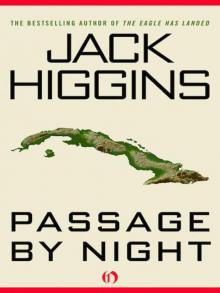 Passage by Night (v5)
Passage by Night (v5)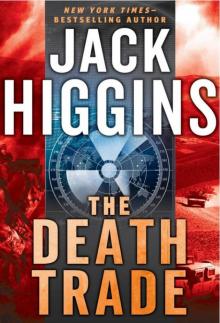 The Death Trade sd-20
The Death Trade sd-20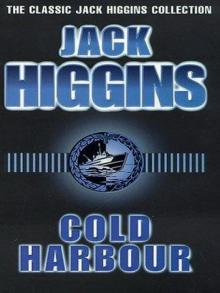 Cold Harbour
Cold Harbour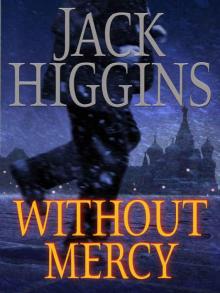 Without Mercy
Without Mercy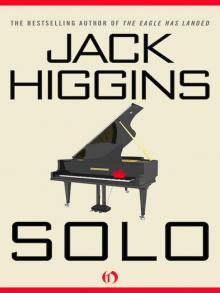 Solo (Aka the Cretan Lover)(1980)
Solo (Aka the Cretan Lover)(1980) First Strike
First Strike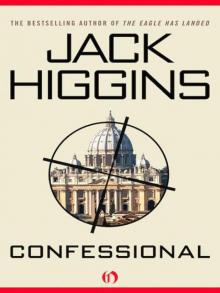 Confessional - Devlin 03 (v5)
Confessional - Devlin 03 (v5)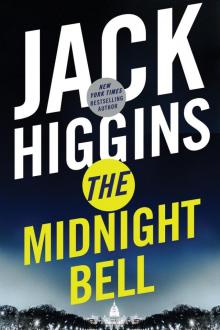 The Midnight Bell
The Midnight Bell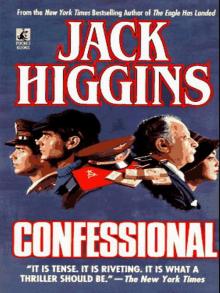 Confessional
Confessional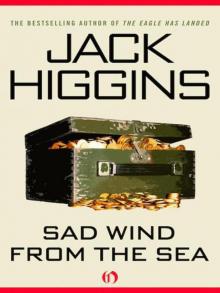 Sad Wind from the Sea (v5)
Sad Wind from the Sea (v5)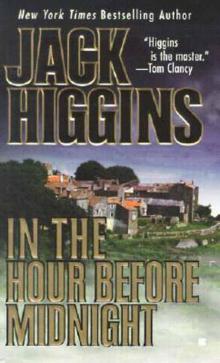 In The Hour Before Midnight aka The Sicilian Heritage
In The Hour Before Midnight aka The Sicilian Heritage Wrath of the Lion
Wrath of the Lion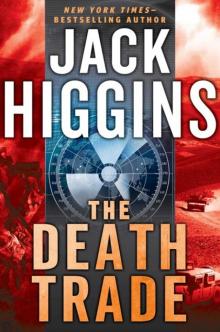 SDillon 20 - The Death Trade
SDillon 20 - The Death Trade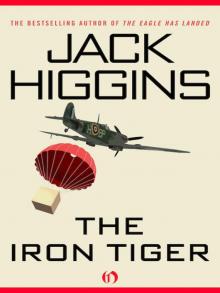 the Iron Tiger (1974)
the Iron Tiger (1974)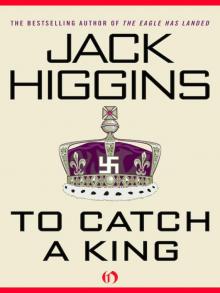 To Catch a King
To Catch a King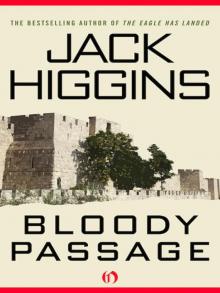 Bloody Passage (1999)
Bloody Passage (1999)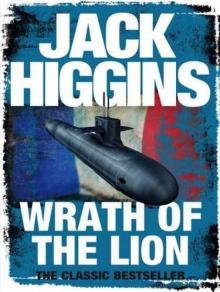 Wrath of the Lion sd-8
Wrath of the Lion sd-8 Sharp Shot
Sharp Shot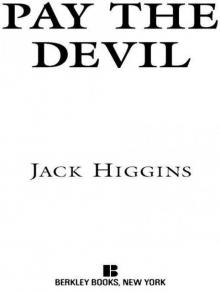 Pay the Devil (v5)
Pay the Devil (v5) A Devil Is Waiting
A Devil Is Waiting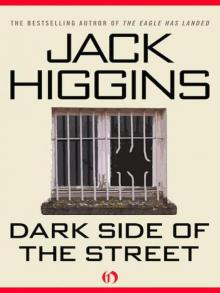 Dark Side of the Street - Simon Vaughn 01 (v5)
Dark Side of the Street - Simon Vaughn 01 (v5)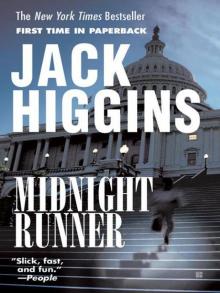 Midnight Runner - Sean Dillon 10
Midnight Runner - Sean Dillon 10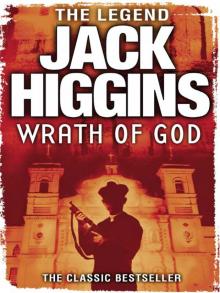 Wrath of God
Wrath of God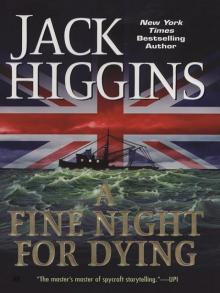 A Fine Night for Dying
A Fine Night for Dying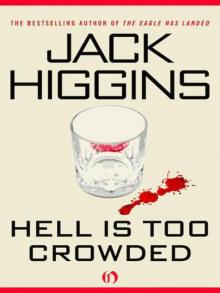 Hell Is Too Crowded v5)
Hell Is Too Crowded v5)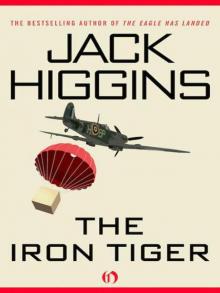 the Iron Tiger (v5)
the Iron Tiger (v5)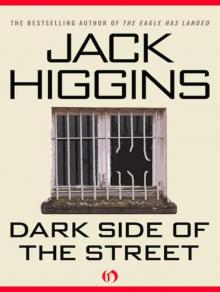 Dark Side of the Street pc-5
Dark Side of the Street pc-5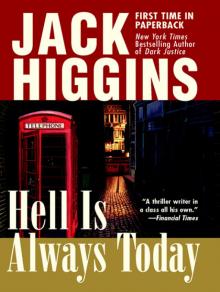 Hell Is Always Today
Hell Is Always Today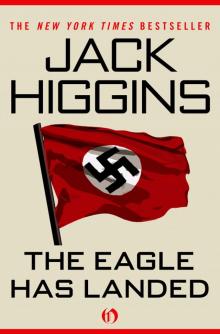 Eagle Has Landed
Eagle Has Landed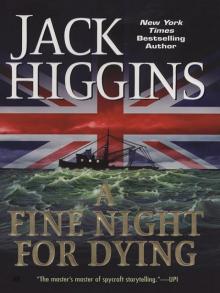 A Fine Night for Dying pc-6
A Fine Night for Dying pc-6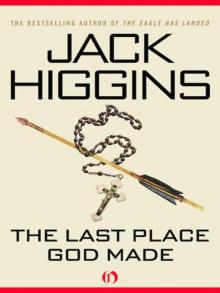 the Last Place God Made (v5)
the Last Place God Made (v5)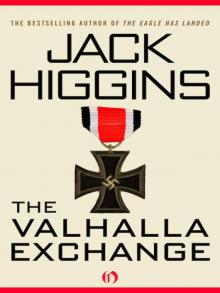 the Valhalla Exchange (1976)
the Valhalla Exchange (1976)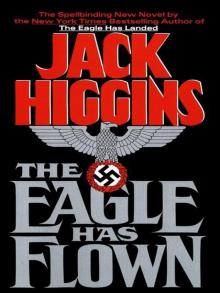 The Eagle Has Flown
The Eagle Has Flown Sure Fire
Sure Fire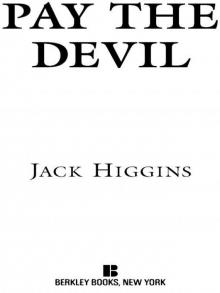 Pay the Devil (1999)
Pay the Devil (1999) Memoirs of a Dance Hall Romeo
Memoirs of a Dance Hall Romeo![a Prayer for the Dying (1974)[1] Read online](http://i1.bookreadfree.com/i1/04/02/a_prayer_for_the_dying_19741_preview.jpg) a Prayer for the Dying (1974)[1]
a Prayer for the Dying (1974)[1]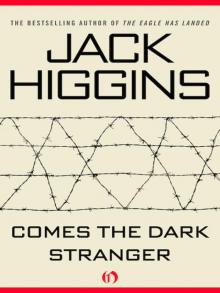 Comes the Dark Stranger
Comes the Dark Stranger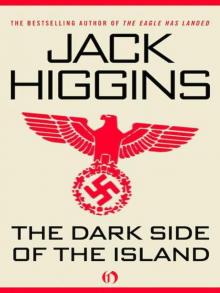 Dark Side Of the Island (v5)
Dark Side Of the Island (v5)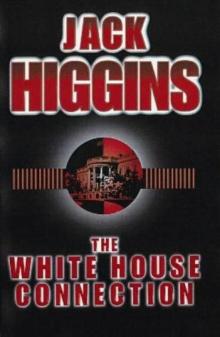 The White House Connection sd-7
The White House Connection sd-7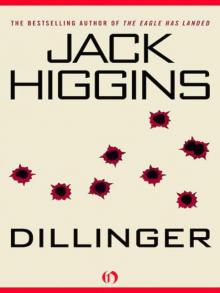 Dillinger (v5)
Dillinger (v5) Eye of the Storm
Eye of the Storm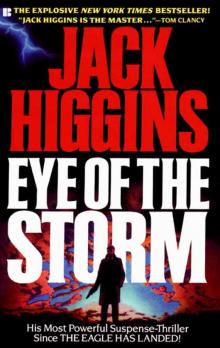 Eye Of The Storm aka Midnight Man
Eye Of The Storm aka Midnight Man A Darker Place
A Darker Place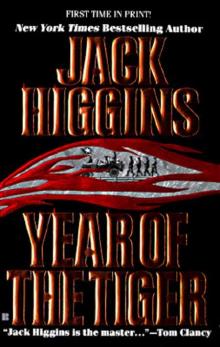 Year Of The Tiger
Year Of The Tiger Death Run
Death Run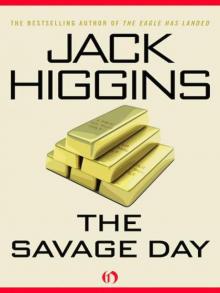 the Savage Day - Simon Vaughn 02 (v5)
the Savage Day - Simon Vaughn 02 (v5)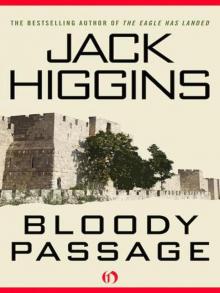 Bloody Passage (v5)
Bloody Passage (v5)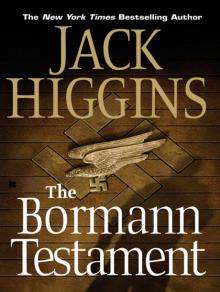 The Bormann Testament
The Bormann Testament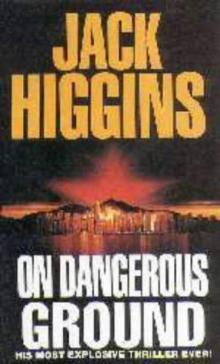 On dangerous ground sd-3
On dangerous ground sd-3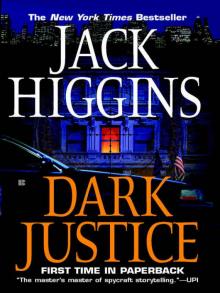 Dark Justice
Dark Justice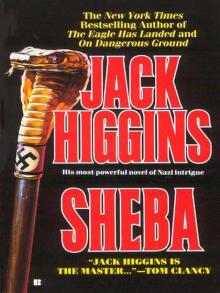 Sheba
Sheba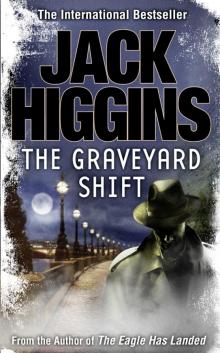 The Graveyard Shift
The Graveyard Shift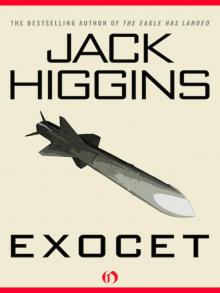 Exocet (1983)
Exocet (1983) The Wolf at the Door
The Wolf at the Door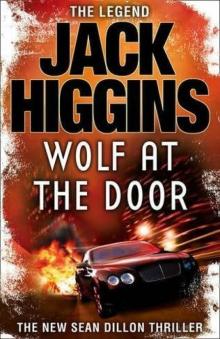 The wolf at the door sd-17
The wolf at the door sd-17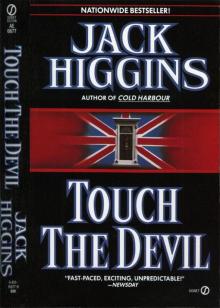 Touch The Devil
Touch The Devil The President’s Daughter
The President’s Daughter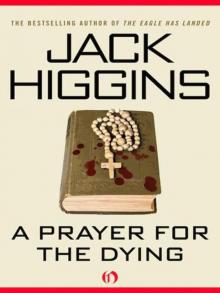 A Prayer for the Dying (v5)
A Prayer for the Dying (v5)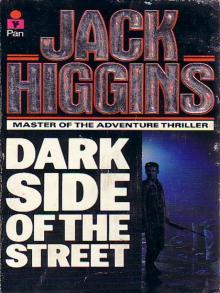 Dark Side Of The Street
Dark Side Of The Street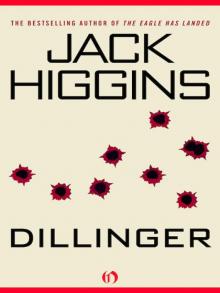 Dillinger (1983)
Dillinger (1983)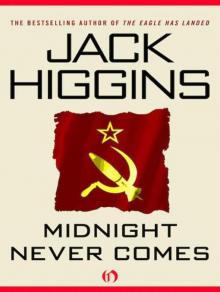 Midnight Never Comes pc-4
Midnight Never Comes pc-4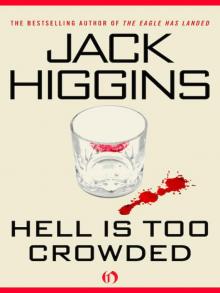 Hell Is Too Crowded (1991)
Hell Is Too Crowded (1991)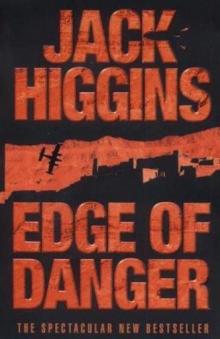 Edge of Danger sd-9
Edge of Danger sd-9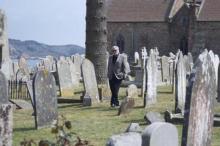 The Thousand Faces of Night (v5)
The Thousand Faces of Night (v5)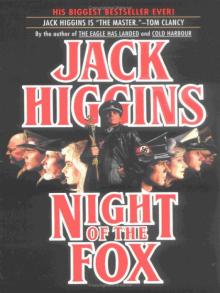 Night Of The Fox
Night Of The Fox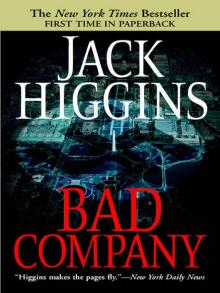 Bad Company
Bad Company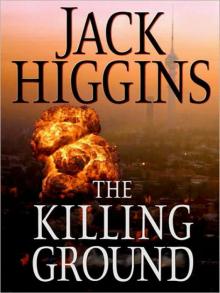 The Killing Ground
The Killing Ground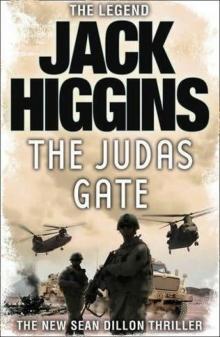 The Judas gate sd-18
The Judas gate sd-18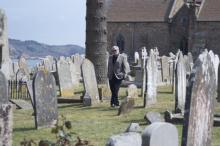 The Thousand Faces of Night (1961)
The Thousand Faces of Night (1961)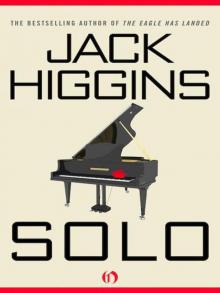 Solo (Aka the Cretan Lover) (v5)
Solo (Aka the Cretan Lover) (v5)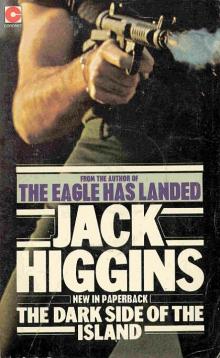 The Dark Side Of The Island
The Dark Side Of The Island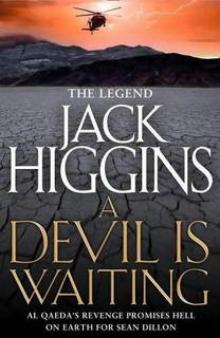 A Devil is vaiting sd-19
A Devil is vaiting sd-19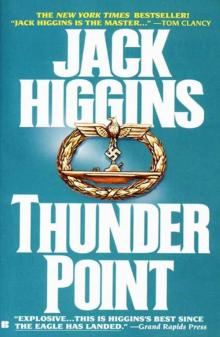 Thunder Point
Thunder Point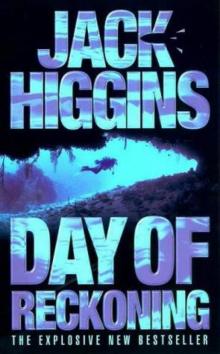 Day of Reckoning sd-8
Day of Reckoning sd-8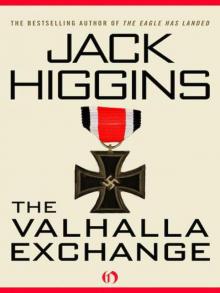 the Valhalla Exchange (v5)
the Valhalla Exchange (v5)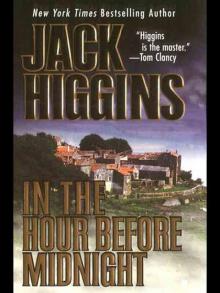 In the Hour Before Midnight
In the Hour Before Midnight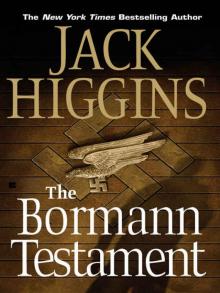 The Bormann Testament (The Testament of Caspar Schultz)
The Bormann Testament (The Testament of Caspar Schultz) The Judas Gate
The Judas Gate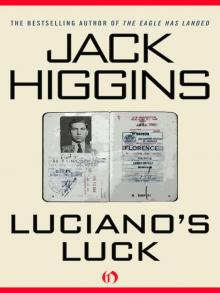 Luciano's Luck
Luciano's Luck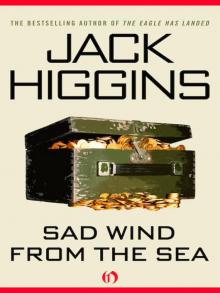 Sad Wind from the Sea (1959)
Sad Wind from the Sea (1959)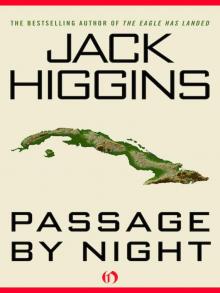 Passage by Night (1987)
Passage by Night (1987)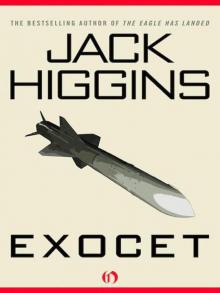 Exocet (v5)
Exocet (v5)